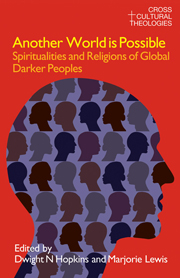Book contents
- Frontmatter
- Dedication
- Contents
- Acknowledgements
- Contributors
- Introduction
- Part I India
- Part II Japan
- Part III Australia
- Part IV Hawaii
- Part V England
- Part VI South Africa
- Part VII Botswana
- Part VIII Zimbabwe
- Part IX Ghana
- 14 “Poverty is madness”: Some Insights from Traditional African Spirituality and Mental Health
- 15 Spiritual Challenges of Widowhood Symbolism in an African Religio-cultural Setting: A Christian Theological Perspective
- 16 Sex and Sexuality in an African Worldview: A Challenge to Contemporary Realities
- Part X Cuba
- Part XI Jamaica
- Part XII Brazil
- Part XIII USA
- Endnotes
- Select Bibliography
- Index of Subjects
- Index of Names
14 - “Poverty is madness”: Some Insights from Traditional African Spirituality and Mental Health
from Part IX - Ghana
- Frontmatter
- Dedication
- Contents
- Acknowledgements
- Contributors
- Introduction
- Part I India
- Part II Japan
- Part III Australia
- Part IV Hawaii
- Part V England
- Part VI South Africa
- Part VII Botswana
- Part VIII Zimbabwe
- Part IX Ghana
- 14 “Poverty is madness”: Some Insights from Traditional African Spirituality and Mental Health
- 15 Spiritual Challenges of Widowhood Symbolism in an African Religio-cultural Setting: A Christian Theological Perspective
- 16 Sex and Sexuality in an African Worldview: A Challenge to Contemporary Realities
- Part X Cuba
- Part XI Jamaica
- Part XII Brazil
- Part XIII USA
- Endnotes
- Select Bibliography
- Index of Subjects
- Index of Names
Summary
This article is set in the Ghanaian context, which continues to be complex and changing. Ghana, formerly known as the Gold Coast, has been severely affected and shaped by its continuous contact with Western, Arabian, Asian as well as other cultures. The effects of these expressions have been as varied as the nature of the encounters. For example, while in some situations the encounter has been an exchange between indigenous Ghanaian thought forms with Western and the Arabian thought forms, as in the case of the current expressions of Christianity and Islam in Ghana, in other situations, especially in the economic, moral and political spheres, Western economic, moral and political ideologies have become predominant, influencing and controlling the daily lives of people. Inevitably, Ghana has become part of the global culture.
Under intense pressure from complex modern processes, the core of the Ghanaian community is, to some extent, being torn asunder by modern factors such as the various effects of globalization, migration from the rural areas to the urban centers, immigration to other countries, bad governance, etc.
In consequence, the society is gradually falling prey to individual acquisitiveness, excessive competition, and malicious envy and vile cupidity and godless commercialism even in religion. The national wealth, in its broad sense, is unevenly distributed in such a way that a few people are filthy rich while the majority of the people both in the rural and urban centers are shamefully poor, often living under harsh conditions. Some people are very frustrated and constantly live with the acceptance that they have totally failed in life.
- Type
- Chapter
- Information
- Another World is PossibleSpiritualities and Religions of Global Darker Peoples, pp. 207 - 218Publisher: Acumen PublishingPrint publication year: 2009

